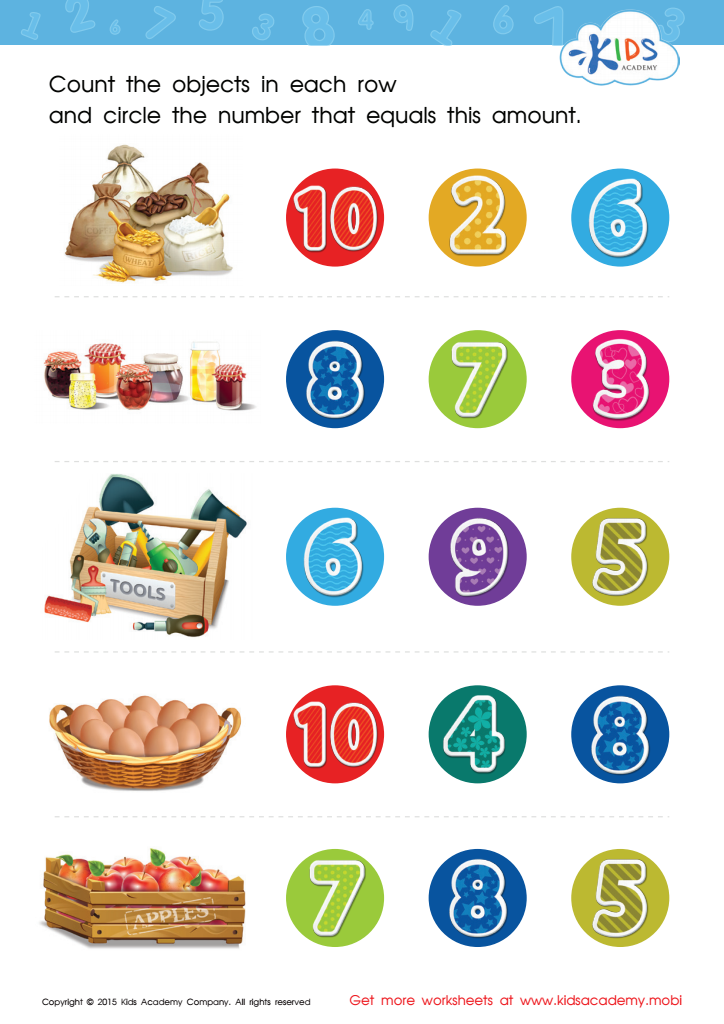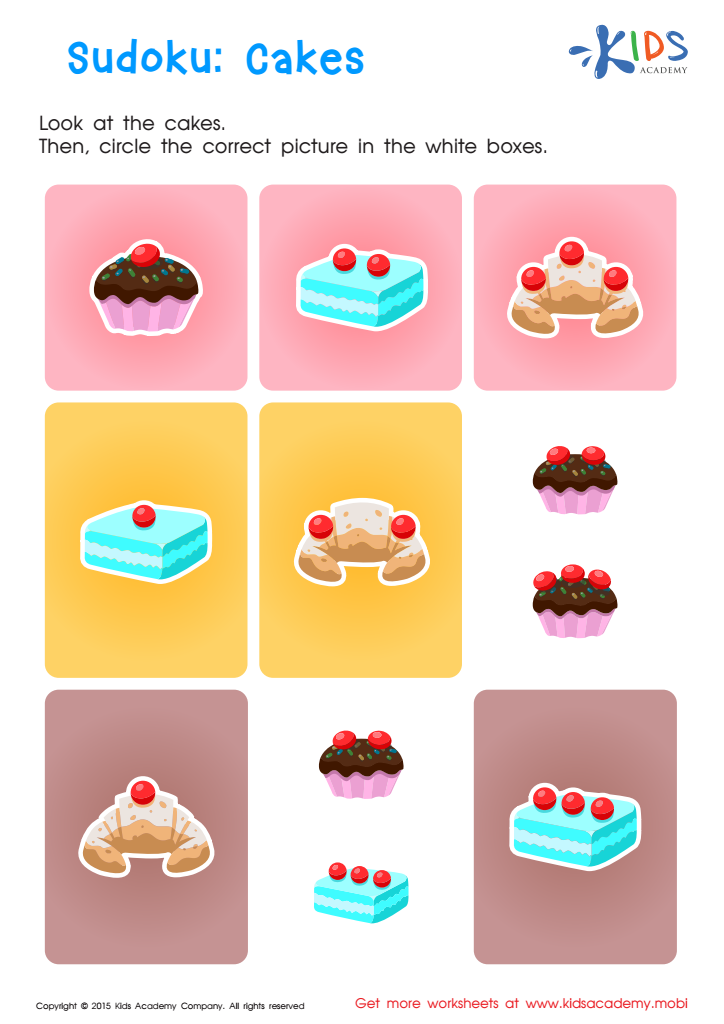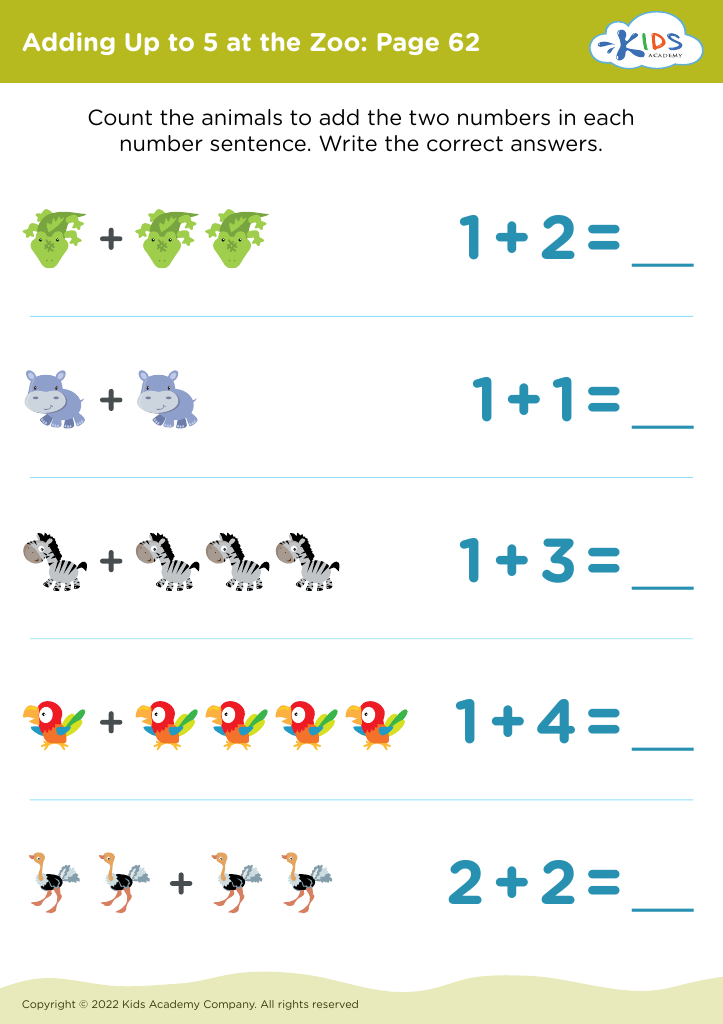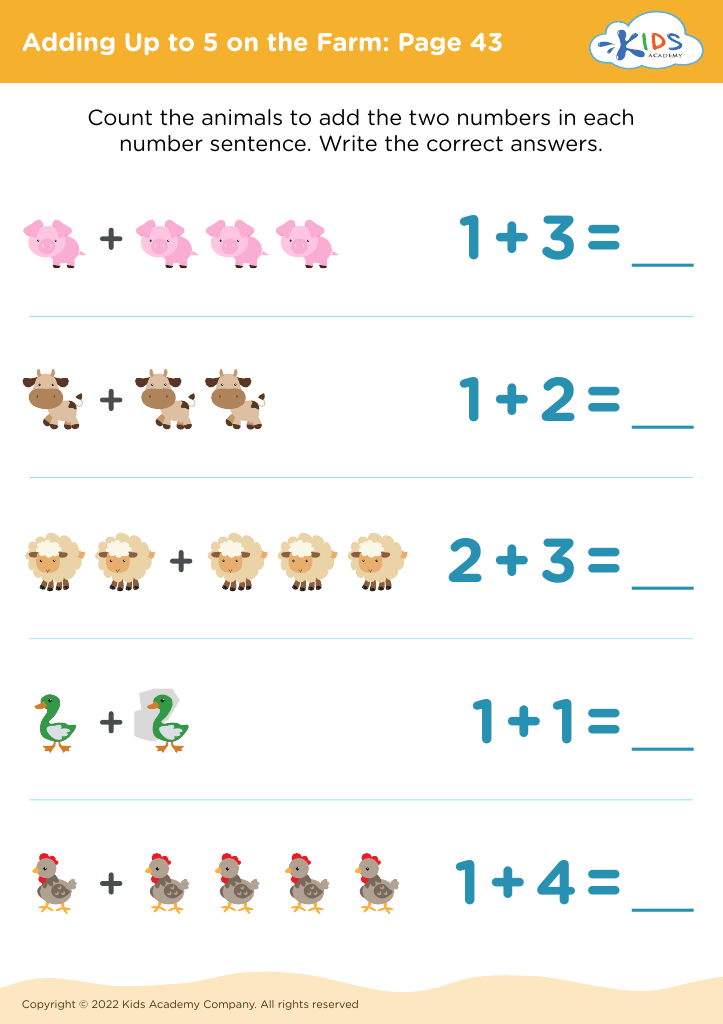Numeracy development Worksheets for Ages 3-5
5 filtered results
-
From - To
Explore our engaging numeracy development worksheets designed for children ages 3-5! Our carefully curated resources aim to enhance foundational math skills through playful learning activities. Kids will enjoy practicing counting, number recognition, simple addition, and sorting through colorful and interactive worksheets. Each activity is crafted to align with early childhood education standards, ensuring that learning is both fun and effective. Parents and teachers can seamlessly integrate these worksheets into daily routines, promoting essential numeracy skills while fostering a love for math. Start your child’s journey towards mathematical confidence today with our vibrant and educational worksheets!


Adding Flower Petals Worksheet


Count and Match 6 – 10 Math Worksheet


Sudoku Worksheet
Numeracy development for children ages 3-5 is crucial as it lays the foundation for their future mathematical understanding and problem-solving skills. During these formative years, children begin to recognize numbers, understand basic quantities, and engage in early counting. This foundational knowledge is not only critical for future academic success but also fosters cognitive development and logical thinking.
Parents and teachers should care about numeracy development because early mathematical skills correlate with overall academic achievement. Engaging young learners in fun, hands-on activities—like counting objects, playing with shapes, or measuring ingredients during cooking—can transform learning into an engaging experience. Moreover, strong numeracy skills enhance children's abilities to navigate everyday tasks, such as understanding time, budgeting, and measuring, which are essential for their independence and self-sufficiency.
Additionally, fostering an early love for math promotes a growth mindset, encouraging children to take on challenges with confidence. Recognizing the importance of numeracy helps cultivate a nurturing environment where children feel supported in their learning journey, ultimately setting the stage for lifelong success in mathematics and related fields. Thus, investing in numeracy development at this early age is fundamental for preparing children for both academic and real-world challenges.
 Assign to My Students
Assign to My Students

















